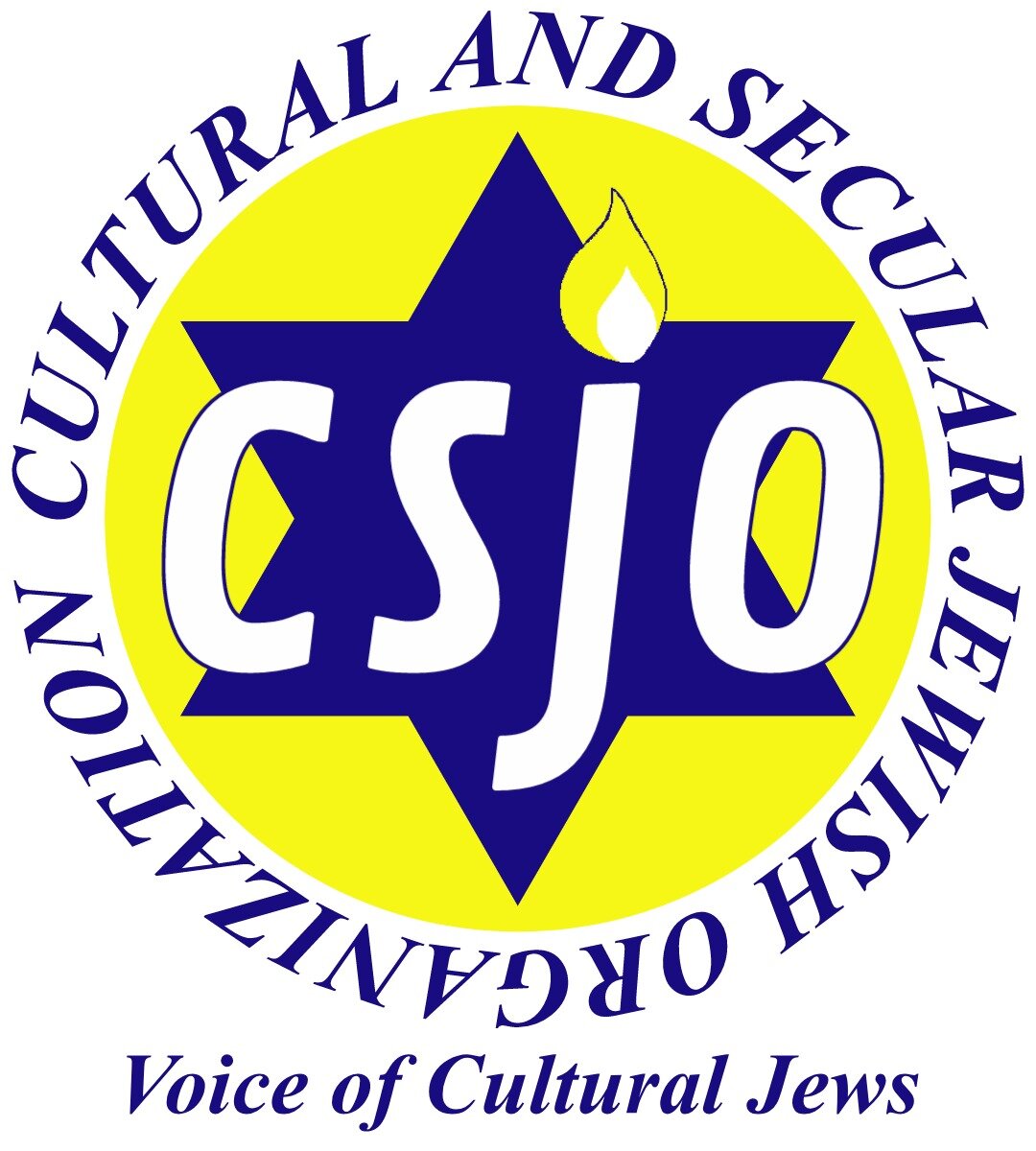By Madeline Burns CSJO is my community. It is my assurance that no matter where I am, I am connected to the people who make me feel Jewish, my friends, my family. It is the community that supported me when my mother was sick and passed away. It was the community who gave my sister and me our Bat Mitzvahs when we never thought we'd get one. It's the community who not only allowed, but encouraged and welcomed, my family to join because my father's church wouldn't accept my mother and my mother's synagogue wouldn't accept my father. It is the community that showed me that being a strong person is what you should strive for. It is the community that showed me how to be Jewish in a way I understood and accepted. It is the community that I could never live without. From my first conference when I was 13 years old, it has been my community, my home.
The Importance of Supporting CSJO
By Dorothy Werblow, Treasurer, Jewish Secular Community of Cleveland, Ohio, and CSJO Supporter Every year the time arrives when each community has to pay their dues to CSJO. Our group, as most, I think, has low membership dues and there is always a discussion about the expense and remarks that we shouldn't rejoin because "CSJO doesn't do anything for us." These remarks only come from a few people. From their narrow viewpoint, I certainly understand, but disagree.
It seems to me that very few of our members, in Cleveland, Ohio, have much knowledge of, or interest in, the international secular Jewish movement. They don't attend the marvelous colloquiums in Michigan or the annual Memorial Day weekends. I have noticed that books are not often borrowed from our library. As this is probably not uncommon in the CSJO family, folks join because they can express their Jewishness in a "Hamish" environment; our monthly Shabbat programs are very short; the food is always good and the folks are great, fun people to spend time with.
CSJO is our connection to the Jewish community, at large, everywhere, not only in our particular city. It is imperative that each community support CSJO because not being part of the national group implies that this is not a movement; we are not an important and growing branch of Judaism; and there might be conflicts of some kind (personality). It has been a long road to achieve the recognition and support of the Jewish Federation in Cleveland. We now have it. I think it is petty and short-sighted to not be part of the national group.
CSJO has grown tremendously in their almost 50 years. At one time I wondered about what they were accomplishing. It seemed like a club of people who had been friends for years and years. A new constitution and bylaws have recently been born, the leadership has changed, technology is improving service to the constituents, and the costs of providing all this has been kept very, very low.
One year, at the colloquium, historian Dr. Norman Cantor was a presenter and was exposed to the humanist and secular Jewish movement for the first time. He was super impressed and told a few of us at the hotel that what CSJO needs is a billionaire benefactor so that we could get the word out. The "Jewish world" needs us. Bill and Melinda Gates and Steven Spielberg were already "taken." Slow and steady progress worked in the past and it will continue to do so.
Dorothy Werblow Jewish Secular Community in Cleveland Volunteer and Member since 1984
A Guide to "Jewish" Produce
By Samara Cogan I have discovered some important and profound things about my secular Jewish identity in the most unlikely place: the produce department. It helps that I spend a lot of my time there; I work in a grocery store cutting fruit. Part of what makes working there so special is being able to help shoppers during Jewish holidays. I live and work in a highly Jewish populated area, and our produce department tends to be busier than most around Rosh Hashanah and Passover. Most people come in knowing exactly what they are looking for. Potatoes, apples, carrots, and celery (already popular items) fly off of our tables faster than we can refill them.
However, occasionally there is a shopper who comes in with only a vague idea of what they need for the honey-dipping New Year tradition or the Seder plate. Perhaps they have Jewish friends and they want to bring a side dish to their meal. Maybe they just married into the “tribe” and they want to impress their in-laws. Whatever the case may be, they need help. And as fate would have it (as the only Jewish person working in my department), they need my help.
Last year, a woman walked into the produce department, list in hand, and asked my coworker for “chazeret.” He said he didn’t think we carried it, but he would go look in the back. My coworker immediately came to find me and said, “I’m not trying to be offensive, but you’re Jewish, right? Somebody just asked me for something I can’t even pronounce.” Together, we eventually sussed out what she needed (bitter herbs), gave her some options (horseradish, romaine, celery, parsley), and sent her on her way. It was then that I realized that I held a unique position in my department: the go-to Jew. Part of my job, in my mind at least, was to become as knowledgeable as I could about the produce items that feature heavily in Jewish traditions, especially around the holidays. Not only was I helping our customers, but I was helping to demystify the Jewish holidays for my non-Jewish coworkers. I don’t claim to know everything, particularly about Sephardic Jewish cuisine, but I am learning.




